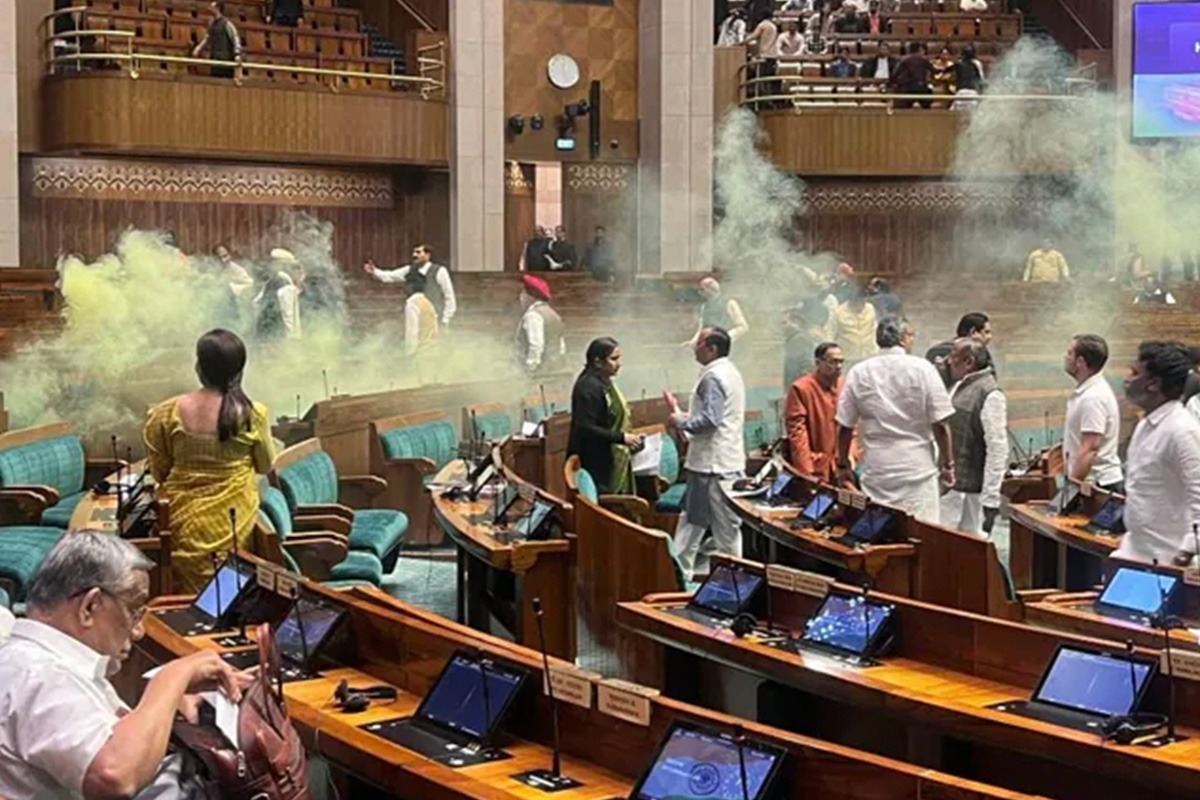The recent security breach at the Parliament House, the symbol of India’s democracy and sovereignty, has shocked and outraged the nation. The breach, which occurred on December 14, 2023, exposed the vulnerability of the security arrangements at the premises and posed a grave threat to the safety of the lawmakers and staff. The Delhi Police, responsible for the security of the Parliament, has rightly registered a case under the Unlawful Activities (Prevention) Act (UAPA) against the unknown perpetrators of the breach.
The UAPA is a stringent law that empowers the government to designate individuals and groups as terrorists and ban them, and also to detain and prosecute them without bail for up to 180 days. The law also allows for confiscating their properties and assets and imposes severe penalties for their involvement in any unlawful activity. The UAPA was enacted in 1967 to combat secessionist and extremist activities and has been amended several times to widen its scope and strengthen its provisions.
Also Read: Is it essential for global leaders to fly in private jets for climate summits?
The use of the UAPA in the Parliament security breach case is justified and necessary for several reasons. First, the breach constitutes an act of terror and a challenge to the authority and integrity of the state. The Parliament is not only a legislative body but also a symbol of India’s sovereignty. Any attempt to disrupt or harm its functioning is an attack on the very idea of India, its sovereignty, and its constitutional values. The UAPA is designed to deal with such acts of terror and subversion and to deter and punish those who indulge in them.
Second, the breach reveals a serious lapse in the security and intelligence apparatus of the country. The Parliament is supposed to be one of the most secure and guarded places in India, with multiple layers of security checks and surveillance. The fact that someone could breach the security and enter the premises undetected and unchallenged raises serious questions about the competence and coordination of the security agencies and personnel. The UAPA enables the government to investigate and prosecute not only the perpetrators but also the possible accomplices and conspirators within and outside the security establishment.
Third, the breach demands a swift and decisive response from the government and the judiciary. The UAPA provides for a speedy and effective legal process to deal with the accused and bring them to justice. The law allows for the arrest and detention of the accused without a warrant, and also for the extension of their judicial custody without bail for up to 180 days. The law also prescribes harsh punishments, ranging from five years to life imprisonment, and even the death penalty, for various offences under the act. The UAPA ensures that the accused do not escape or evade the law and that they face the full consequences of their actions.
The Parliament security breach is a serious incident that has shaken the people’s confidence and trust in the country’s security and intelligence agencies. The government and the police have acted promptly and appropriately by invoking the UAPA against the accused. The UAPA is a necessary and proportionate response to the breach and a step in the right direction to safeguard the nation’s sovereignty and democracy.









